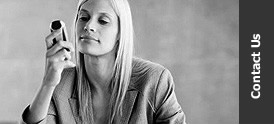
Candidate Toolbox

Interview Cheat Sheet
Relax -- a cheat sheet is not really cheating. It's a checklist to make sure you stay focused before, during and after the interview. Creating a cheat sheet will help you feel more prepared and confident. You shouldn't memorize what's on the sheet or check it off during the interview. You should use your cheat sheet to remind you of key facts. Here are some suggestions for what you should include on it:
In the Days Before the Interview
1. Draw a line down the center of a piece of paper. On the left side, make a bulleted list of what the employer is looking for based on the job posting. On the right side, make a bulleted list of the qualities you possess that fit those requirements.
2. Research the company, the industry and the competition.
3. Prepare your 60-second personal statement: Your answer to the, "Tell me about yourself," question.
4. Write at least five success stories to answer behavioral interview questions ("Tell me about a time when…" or "Give me an example of a time…").
5. List 10 questions to ask the interviewer about the job, the company and the industry.
6. Research salary data and determine your worth.
7. Determine your salary needs based on your living expenses -- what is your bottom line?
8. Get permission from your references to use their names.
9. Make a final call to your recruitment consultant for any other information you may need in preparation for the interview. Don’t be afraid to ask questions here if you have any.
Before You Go to the Interview
1. Do you look professional?
Check yourself in the mirror; part of your confidence will come from looking good.
2. Carry these items to the interview:
- Several copies of your resume on quality paper.
- A copy of your references.
- A pad of paper on which to take notes (notes are optional).
- Directions to the interview site.
3.Prepare answers to the 10 most common interview questions:
- Tell me about yourself.
- Why did you leave or are you leaving your last position?
- What do you know about this company?
- What are your goals?
- What are your strengths and weaknesses?
- Why do you want to work for this company?
- What has been your most significant achievement?
- How would your last boss and colleagues describe you?
- Why should we hire you?
- What are your salary expectations?
Upon Arrival
1. Arrive early -- enter the building 10 minutes before your appointment.
2. Review your prepared stories and answers.
3. Go to the restroom and check your appearance one last time.
4. Announce yourself to the receptionist in a professional manner.
5. Stand and greet your interviewer with a hearty -- not bone-crushing -- handshake.
6.Smile and look into the interviewer's eyes.
During the Interview
1. Try to focus on the points you have prepared without sounding rehearsed or stiff.
2. Relax and enjoy the conversation. Learn what you can about the company.
3. Ask questions and listen; read between the lines.
4. At the conclusion, thank the interviewer and determine the next steps.
5. Ask for the interviewer's business card so you can send a follow-up letter.
After the Interview
1. As soon as possible, write down what you are thinking and feeling.
2. As soon as possible call your recruitment consultant and share your feelings on the interview and company while the information is still fresh.
3. Later in the day, look at what you wrote and assess how you did.
4. Write a follow-up thank-you letter, reminding the interviewer of your qualities.
NOTE: Wear your most professional looking clothes. Just because the people interviewing you might be in casual clothes you need to dress the part of a successful individual.
ALSO: good clothes make you feel better about yourself!




